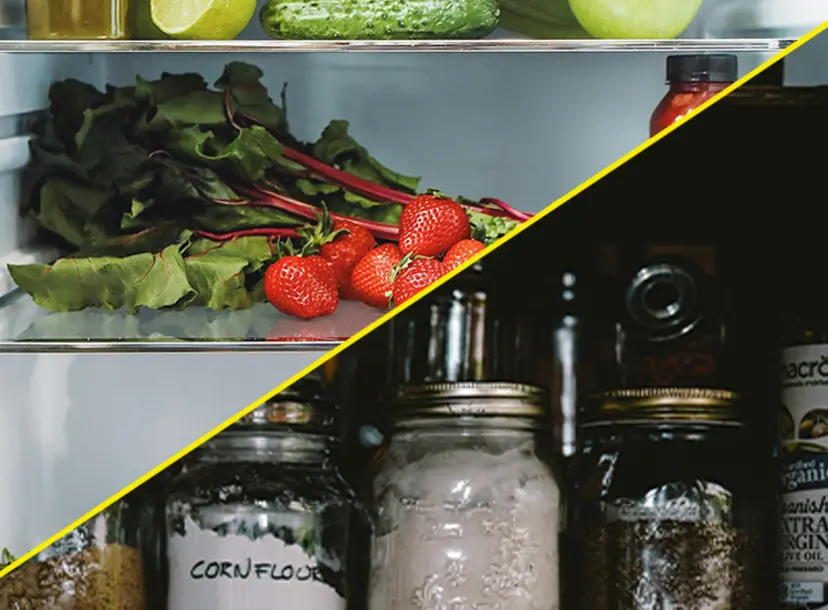One of the greatest debates of the modern age is on how we store our food. For some foods it’s rather self-explanatory, for example keeping raw meat in the fridge and dried pasta in the cupboards. For others, their method of storage has been argued since refrigerators were introduced into the modern home in the 1960s.
While we eagerly await the 2024 CHRISTMAS LECTURES: The Truth about Food, let's investigate where different foods should be stored, according to science.
Eggs
Fridge or cupboard? ...Fridge!
Storing eggs in the fridge will help them stay fresher for longer. They should be kept in the coldest part of the fridge and not in the door, which is more susceptible to temperature fluctuations when the fridge is opened and closed.
This is also partly why they are not stored in the fridge in stores, due to the temperature change between being in transit from the store to your fridge. This would increase the risk of bacterial contamination. Most supermarkets are kept below 20°C, but the best way to ensure a constant temperature at home would be in the fridge.

Ketchup
Fridge or cupboard? ...Personal preference.
Tomato ketchup contains vinegar which prevents bacterial growth and preserves it for a long time at room temperature. However, if you prefer the contrast of a cold condiment with hot food, then the fridge door is a good place for your ketchup.
Coffee beans
Fridge or cupboard? ...Cupboard!
The moisture in the fridge can lead to bacteria growth in your coffee beans.Odours from the fridge can also be absorbed by the porous beans. So for nice tasting coffee, it is recommended to keep it out of the fridge.
For more long-term storage, coffee beans can be stored in the freezer in an airtight container. This prevents the oxidation process that causes coffee to lose its flavour over time and helps maintain freshness.
Salted butter
Fridge or cupboard? ...Depends.
Salted butter doesn’t need to be stored in the fridge as it is not prone to bacterial growth. However, for long term storage, the fridge might be best to keep it fresher for longer.

Avocados
Fridge or cubpoard? ...Cupboard - then, fridge.
Until an avocado is ripe, it’s best to keep at room temperature. Then it can be kept in the fridge to keep it from going bad once it’s ripe. Avocados ripen best at temperatures between 16-18°C, and they will maintain their ripeness for two days at this temperature, or up to 5 days in the fridge.
Once an avocado is cut, exposure to the air can cause the avocado to go brown through oxidation, to prevent this, an avocado can be stored in an air tight container in the fridge.
A taste of food science
For this year's CHRISTMAS LECTURES, supported by CGI, Chris van Tulleken will take us on a journey finding the amazing in the everyday through the science of food, from tastebuds to toilet.
